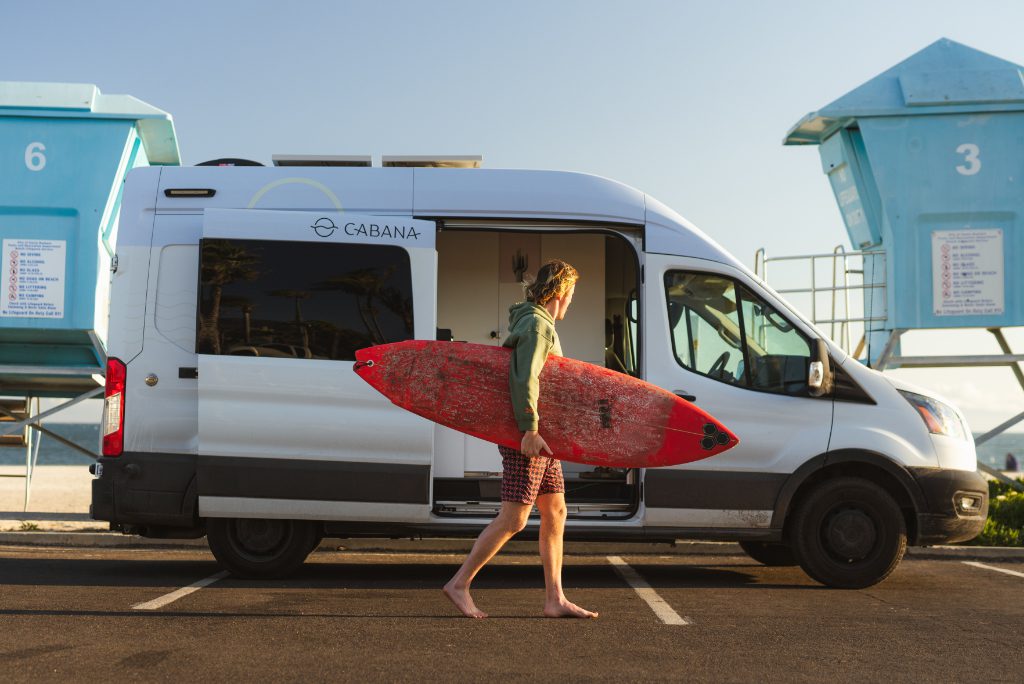Skift Take
Venture capital is tight for certain types of startups, so those that need help scaling might run into some trouble.
Cabana, a startup platform for booking camper vans as vacation rentals, is seeking buyers to avoid shutting down.
“Without an acquirer, we’re not in a position where we can continue operations,” said Cabana CEO Scott Kubly, in an interview with Skift. “So we do need an acquirer, but somebody that acquires us will acquire a business that is poised to scale.”
Besides camper van bookings, the Cabana platform includes tools for trip planning and itinerary building, and there’s contactless check-in and check-out.
Cabana started by owning the vans — and still owns several dozen — but has been transitioning to a model where Cabana rents vans on behalf of owners. Cabana’s long-term goal has been to manage bookings marketing and offer the back-office software to van owners.
Users can book trips in Seattle and Minneapolis – it has cut its three other locations, Los Angeles, San Francisco, and Austin.
Kubly said demand has been growing and revenue is up this year, and he expects an average daily rental rate of $245 by the end of the year.
The problem now is that the company needs capital to scale and achieve profitability.
Capital Raising Options
The first option was to look for another round of venture capital, but that did not work out. Cabana has previously raised a total of $16 million, including a $10 million series A round in 2021. Investors have included Craft Ventures, Goldcrest Capital, Nordic Eye, and entrepreneur Jason Calacanis.
“The venture markets are really, really tight right now, particularly for companies that are at our stage,” Kubly said. “I think more importantly, what we realized is that in order to really scale, finding a good strategic acquirer would create way more value for everyone. Finding that partner will allow us to scale much more rapidly and cost effectively.”
The sales memo drafted by a financial advisor says that Cabana “is facing financial challenges and therefore seeking an acquirer to purchase the Company or substantially all of its assets.”
But Kubly emphasized that the preference is for someone to acquire the company, not just the assets. He is open to a number of buyer options, such as a car rental company that wants to open a new line of business or a hotel operator that wants to add more rooms without developing property.
“We’re looking for an acquirer for sure, and I think right acquirer will have a chance to create a lot of value for their core business.”
Cabana is looking to close the deal by November 30, with a letter of intent from the potential buyer by November 21.
A Tight Capital Market
When Cabana raised $10 million in 2021, it was a time when interest rates were low, and that led to high valuations.
“And now that interest rates are going up and the market is pulled back quite a bit, it’s really hard for those companies that raised aggressively in that period of time to live up to the valuations that they raised under, and so now they’re in this crunch,” said Cara Whitehill, an industry advisor and investor and the founder of Unlock Advisors.
Investors at that time were more focused on growth potential, not necessarily paying as much attention to current performance. So startups that may not have had a strong market fit, or those that are just finding it now, could have to raise more money to continue operations.
But now, venture capitalists are less likely to invest in startups.
“So you’re seeing situations like this, where companies that raised a lot a couple years ago are now having to come back to the to the trough — and the trough is closed,” Whitehill said.
Many of the travel tech startups that announce fundraises each week say it has been a tough market for finding capital. Kubly’s experience was that many of the investors he spoke with were more interested in early stage companies or those focused on software or AI alone.
Whitehill believes it’s easier for an early stage startup to raise money now because new founders are able to meet higher requirements, while mid-stage startups are having to adjust to changing conditions.
“VCs have less money to invest, and they’re being stingier, and they’re having higher standards to review where they invest,” Whitehill said. “And so that’s additional pressure, I think, on that late series A, series B, series C growth stage.”
The Daily Newsletter
Our daily coverage of the global travel industry. Written by editors and analysts from across Skift’s brands.
Have a confidential tip for Skift? Get in touch
Tags: mergers and acquisitions, startups, venture capital
Photo credit: Pictured: A Cabana recreational vehicle. Cabana
